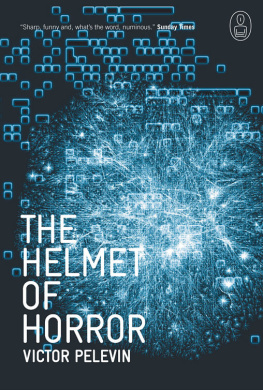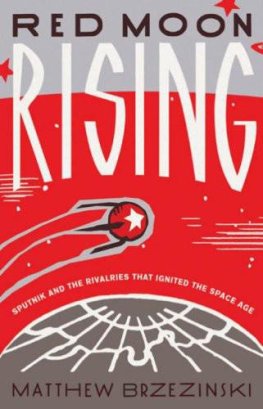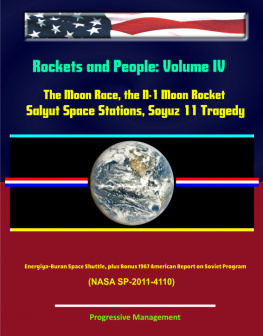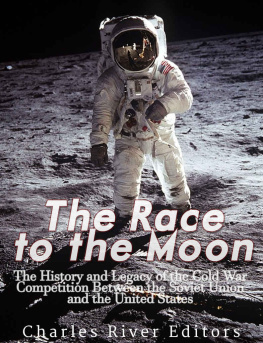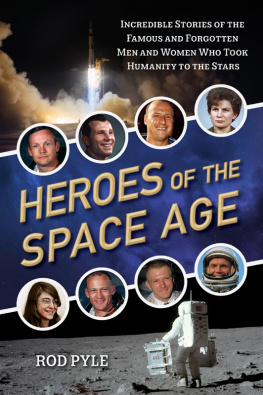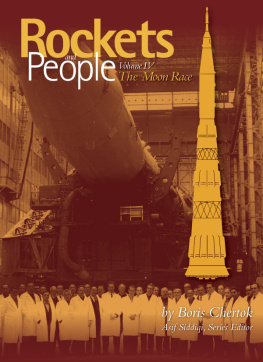Omon Ra
Victor Pelevin
Translated from the Russian by Andrew Bromfield
A NEW DIRECTIONS BOOK
For the Heroes
of the Soviet Cosmos

Omon is not a particularly common name, and perhaps not the best there is. It was my fathers idea. He worked in the police all his life and wanted me to be a policeman too.
Listen to me, Ommy, he used to say to me when hed been drinking, if you join the police, with a name like that then if you join the Party
Although my father had occasionally shot at people, he wasnt really vicious by nature; in his heart he was a cheerful and sympathetic man. He loved me a lot, and hoped that life would at least grant me the achievements it had denied him. What he really wanted was to get hold of a plot of land somewhere near Moscow and start growing beetroot and cucumbers on itnot so that he could sell them at the market or eat them (though that too), but so that he could strip to the waist, slice into the earth with his spade, and watch the red worms and the other underground life wriggling about, so that he could cart barrowloads of dung from one end of the holiday village to the other, stopping at other peoples gates to swap a few jokes. When he realised he would never get any of this, he began to hope that at least one of the Krivomazov brothers would lead a long and happy life (my elder brother, Ovir, whom my father had wanted to make into a diplomat, died of meningitis at the age of eleven, and all I remember about him is that he had a long oblong birthmark on his forehead).
My fathers plans on my behalf failed to inspire me with any real confidenceafter all, he himself was a Party man, and he had a perfectly good Russian name, Matvei, but all he had earned for his efforts was a miserly pension and a lonely, drunken old age.
I dont remember my mother too well. The only memory I have is of my drunken father in his uniform trying to pull his pistol out of its holster while she clutched at his arm, her hair all messed up, and shouted: Matvei, come to your senses!
She died when I was still very young, and I was raised by an aunt and went to see my father on weekends. He usually had a red and puffy look, and the medal he was so proud of hung crooked on his soiled pyjama jacket. There was a bad smell in his room, and hanging on the wall was a reproduction of Michelangelos fresco The Creation of Adam, with Adam lying on his back and a bearded God floating above him stretching out his mighty hand to touch the frail human one. This picture had a strangely profound effect on my father; it clearly reminded him of something from the past. I usually sat on the floor of his room and played with a toy train set, while he snored on the fold-down divan. Sometimes he would wake up and peer at me for a while through screwed-up eyes; then he would hang over the edge of the divan, propping himself against the floor, and stretch out a large veinous hand that I was supposed to shake.
So whats your surname?
Krivomazov, I would reply, faking a shy smile, and he would pat me on the head and feed me sweets; he ran through the whole routine so mechanically that it didnt even disgust me.
Theres almost nothing I can say about my auntshe was quite indifferent to me and made sure that I spent most of my free time in various summer camps for Young Pioneers, and extended day-school groups.
Everything I remember from my childhood is linked in one way or another with a dream of the sky. Of course, all this wasnt the very beginning of my life: before this there was a long, bright room full of other children and large plastic cubes scattered haphazardly about the floor; there were the icebound steps of the wooden slide that I plodded up with eager haste; there were the frost-cracked models of young mountaineers made of painted plaster in the yard; and lots more besides. But I cant really say that it was I who saw all this; in early childhood (as, perhaps, after death), a person extends in all directions at the same time, so we can say he still doesnt exist yetthe personality comes into being later, when an attachment to some particular direction appears.
I lived not far from the Cosmos cinema. Our district was dominated by a metal rocket standing on a tapering column of solid titanium smoke, like some huge scimitar thrust into the ground. But funnily enough, it wasnt this rocket that marked the beginning of my personality, it was the wooden aeroplane in the small childrens playground beside my block. It wasnt exactly an aeroplane, more a toy house with two windows, and during some repair work someone had nailed on a pair of wings and a tail made from the boards of a fence that had been pulled down, then covered the whole thing with green paint and decorated it with a few large reddish stars. There was room inside for two or three people, and there was a small attic with a little triangular window that looked out onto the wall of the military enlistment office: by unwritten agreement of the entire yard, this attic was regarded as the pilots cabin, and when the plane was shot down, those who were sitting in the body of the fuselage jumped first, and only afterwards, when the earth was already roaring up towards the windows, could the pilot follow themif, of course, he had time. I always tried to be the pilot, and I could actually see the sky and the clouds and the earth floating by below, where the brick wall of the military enlistment office should have been, with the whiskery violets and dusty cacti peering forlornly out of its windows.
I really loved films about airmen, and one of these films provided the most powerful experience of my childhood. On a cosmically dark December evening, I switched on my aunts television and there on the screen was an aeroplane swaying its wings, with an ace of spades on its side and a cross on its fuselage. I leaned down towards the screen, and immediately it was filled with a close-up of the cabin section. Behind the thick panes of glass a subhuman face smiled in goggles like a mountain skiers and a helmet with gleaming ebonite earpieces. The pilot raised an open hand clad in a glove with a long black sleeve and waved to me. Then the screen was filled with an inside view of another plane: two fliers in fur-lined jackets were sitting at identical control columns and peering through the metal-framed Plexiglas, following the convolutions of the enemy fighter flying close beside them.
M-109, said one flier to the other, theyll bring us down. The other, with a handsome emaciated face, nodded.
I dont hold it against you, he said, clearly continuing an interrupted conversation. But just remember: this thing between you and Varya had better be for life To the grave!
At that point I stopped taking in the action on the screen. I was struck by the sudden thought, or not even a thought, merely its faintly registered shadowas though the actual thought had floated past close to my head, only catching it with its edgethat if Id just been able to glance at the screen and see the world from the cabin where the two fliers in fur-lined jackets were sitting, then there was nothing to prevent me from getting into this or any other cabin without the help of the television, because flight is no more than a set of sensations, the most important of which Id already learned to fake, sitting in the attic of the winged hut with the red stars, staring at the enlistment office wall that was where the sky should be, and making quiet droning noises with my mouth.
This vague realisation struck me so hard that I watched the rest of the film without paying proper attention, getting involved in the television reality only when the screen was filled with smoke trails or a row of enemy planes standing on the ground hurtling up towards me. That means, I thought, I can look out from inside myself like looking out of a plane, it doesnt really matter at all where you look out from, what matters is what you see From that time on, as I wandered along some wintertime street, I often imagined that I was flying in a plane over snow-covered fields; as I turned a corner, I inclined my head, and the world obediently tilted right or left.



